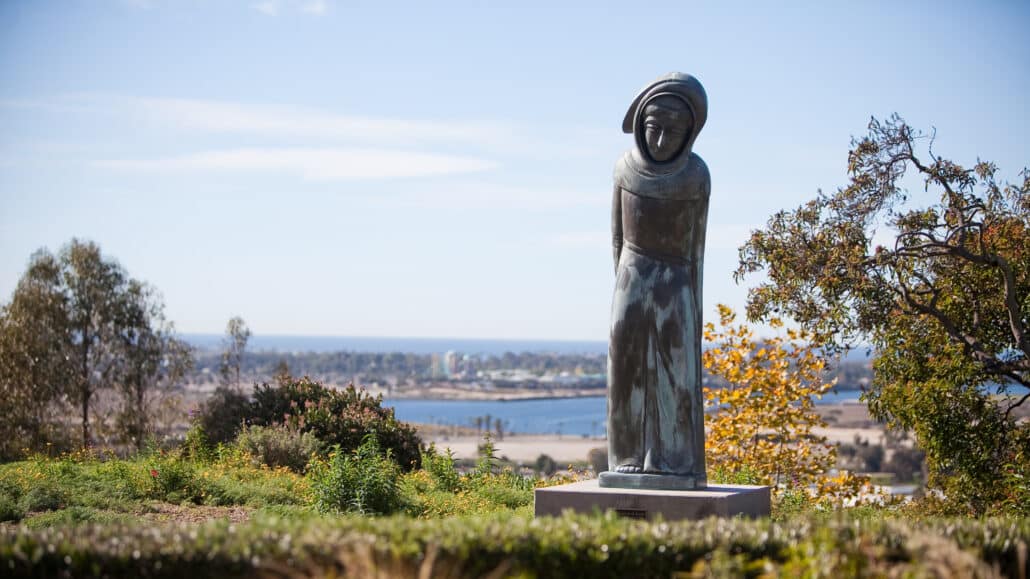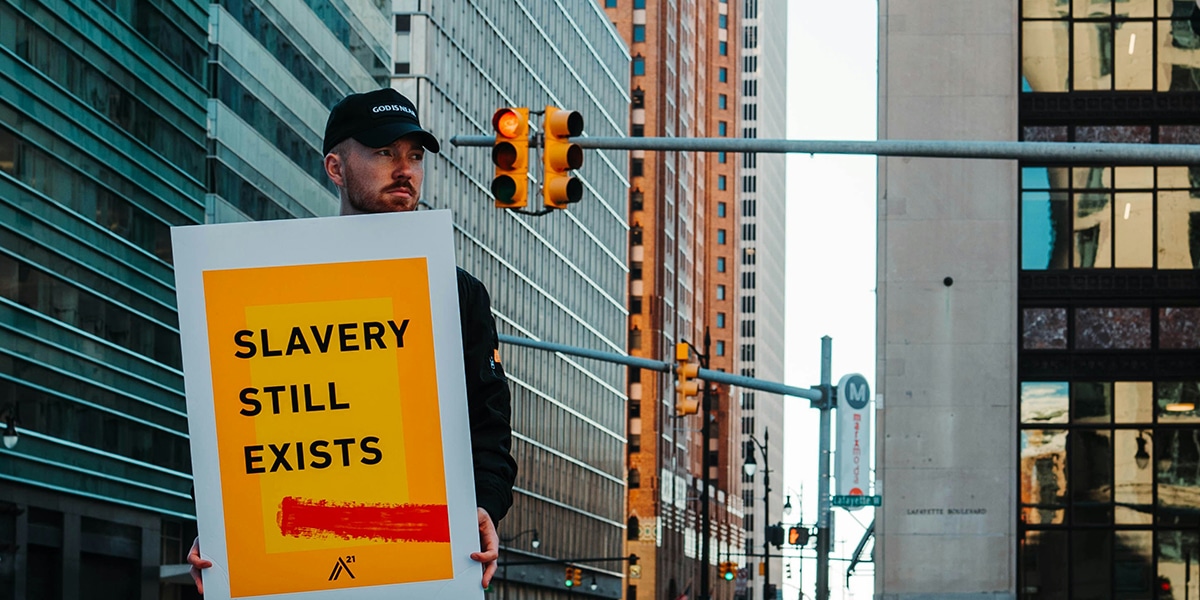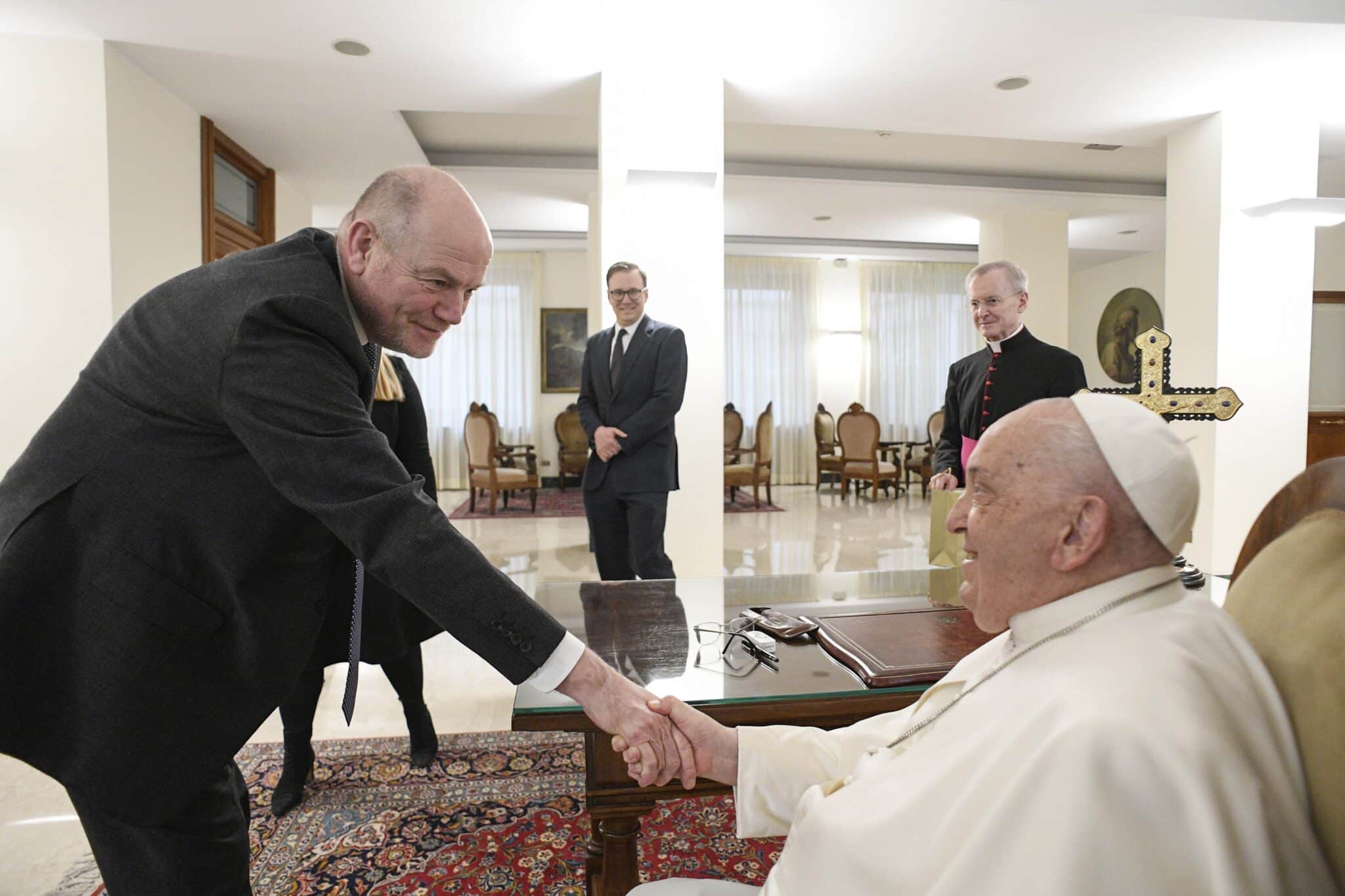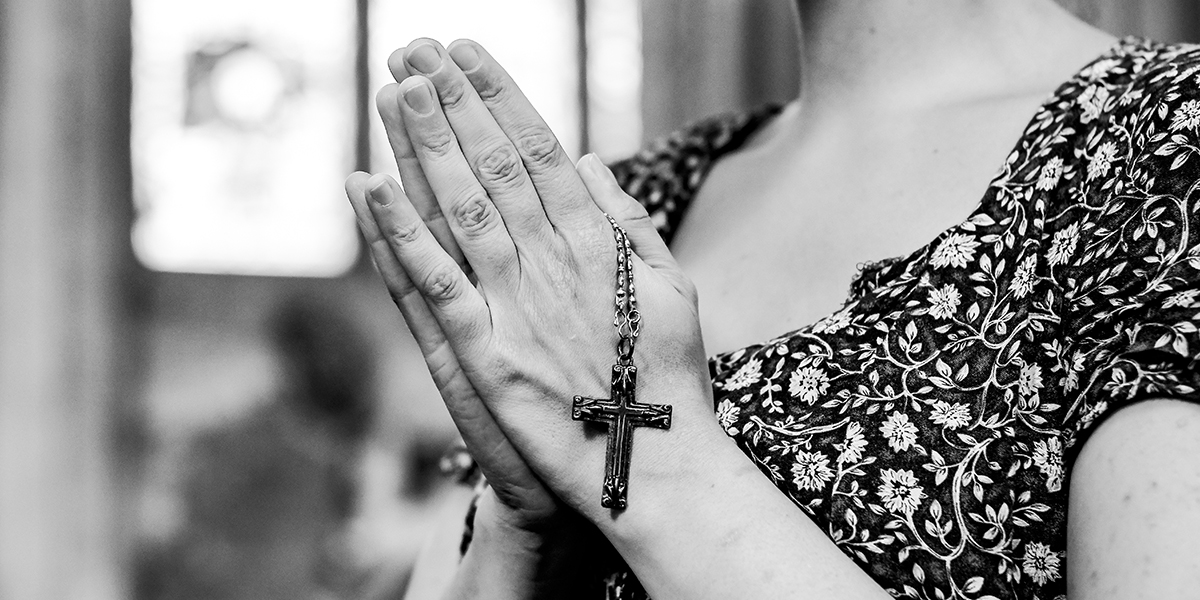Do you remember what the first day of school is like? Chances are there were butterflies in your stomach along with eagerness to reconnect with friends. And, of course, there’s always curiosity about the teacher! Things aren’t so different at the Franciscan School of Theology, even in its new graduate degree that’s offered completely online.
Students arrive at the beginning of a new semester with fresh energy that is a mixture of excitement and nerves. The first assignment tends to tamp down any anxiety they bring with them: introduce yourself. That’s easy enough! Students often stick to the basics at first: where they live, what they do for a living, how big their family is, their dog’s name. There’s a flurry of sharing tidbits of life stories: Los Angeles, Brisbane, Helena, Orlando, Kittery, East Bridgewater, Indianapolis. Lifeguard, high school teacher, hospice caregiver, chaplain, freelance writer, happily retired, chemistry professor. Married, single, widowed, vowed religious. It doesn’t take long for others to chime in and find similarities and make connection.
“I once visited Australia and loved it. What’s it like to live there?”
“I experienced a loss recently too. Let me know if you want to talk.”
“Here’s a photo of my dog, Boo. He’s going to therapy dog training!”
It starts off with the small stuff—and not-so-small stuff–but within a few days these students are discussing the finer aspects of John Duns Scotus’ thoughts on the incarnation; St. Clare’s practice of perseverance; or the authenticity of Sister Thea Bowman, FSPA. And they do so all online.
The Franciscan School of Theology launched its online Master of Theological Studies-Franciscan Theology in fall, 2021. Working in close collaboration with the Learning Design Center at the University of San Diego, the FST faculty have created a completely asynchronous online degree that challenges students intellectually, while at the same time encourages students to relate to one another and the instructor in respectful and down-to-earth ways. Learning in the degree program isn’t so much about memorizing what to think. Instead, learning is all about how we think, considering different views, while analyzing sources and perspectives. Most of all, learning in a Franciscan context is about cultivating space for mutual respect.
If you think this academic program is just for young adults, think again. Current students range in age from 25-85. The diversity of life experience and faith-journeys makes discussion boards and interactive assignments especially rich. A retired lawyer may share her experiences of pre-Vatican II Mass with a recent college graduate who was born in the 21st century. And a thirty-something campus minister may share what he has learned from working with young adults in college in the Pacific Northwest with another chaplain who ministers with hospice patients in Australia. The lived experiences of faith broaden the template of learning in the online environment.
But one could ask, is an academic program necessary for this kind of sharing? Perhaps not, but academic engagement offers a significant path to growth in faith that many students hadn’t known possible. The Franciscan tradition with its rich intellectual and spiritual traits offers ample ground for deep academic engagement and spiritual reflection that leads to life-changing transformation.
For one student this meant nothing less than finding her place in the Franciscan tradition. Mary was in her late 60s, already with a mature faith and prominent career when she started studying in the MTS-FT degree program. After reading about the Franciscan lay woman, Jacopa dei Settesoli, who cared for St. Francis as he was dying, the student posted on a Discussion Board: “I had never heard about her before this. Until now, I thought I could only be an outsider in this tradition. But Jacopa shows me how I am Franciscan, too.”
Another student, Sam, a Secular Franciscan who is in his 50s and works full time, shared with me his anxiety over returning to school after so many years in the workforce. “I don’t know if I can write papers anymore,” he confided during a one-on-one Zoom meeting with me as the instructor. Over the following weeks we met virtually to go over drafts of assignments; we emailed back and forth over questions he had; and he worked with feedback he received from me and from his peers. By week five he reached out in an email and wrote, “I never knew graduate school could be like this! I thought you were going to try to weed out the weak ones like me. But instead, I feel like I’m learning with all these new friends. And they’re all Franciscan!”
Whether it’s a student who finds her place in the Franciscan tradition or one who experiences support and growth in faith through the academic engagement in Franciscan theology there is one experience that is common among the students and instructors of the program: we feel each other’s presence even at a distance. Real presence makes all the difference in the world in graduate studies and in faith.









4 thoughts on “The Franciscan School of Theology: Presence at a Distance”
Are there any online courses in Pastoral Care? I am the Pastoral Care person here at our retirement /nursing home and would like to take some courses related to Pastoral Care.
The video that I viewed was very informative.
Thank you.
Are there any online courses?
Peace and Good!
Am a franciscan secular and desiring to know and live my spirituality..
I have a diploma in Franciscan theology at Tangaza university college Kenya. Am interested in persuing a degree programe, is it possible?what are the requirements.
Yours in Christ;
Jane Wangari.
Peace and all good! For inquiries about the MTS-FT degree at the Franciscan School of Theology go to https://www.fst.edu/degrees-programs/mts-franciscan-theology-online/